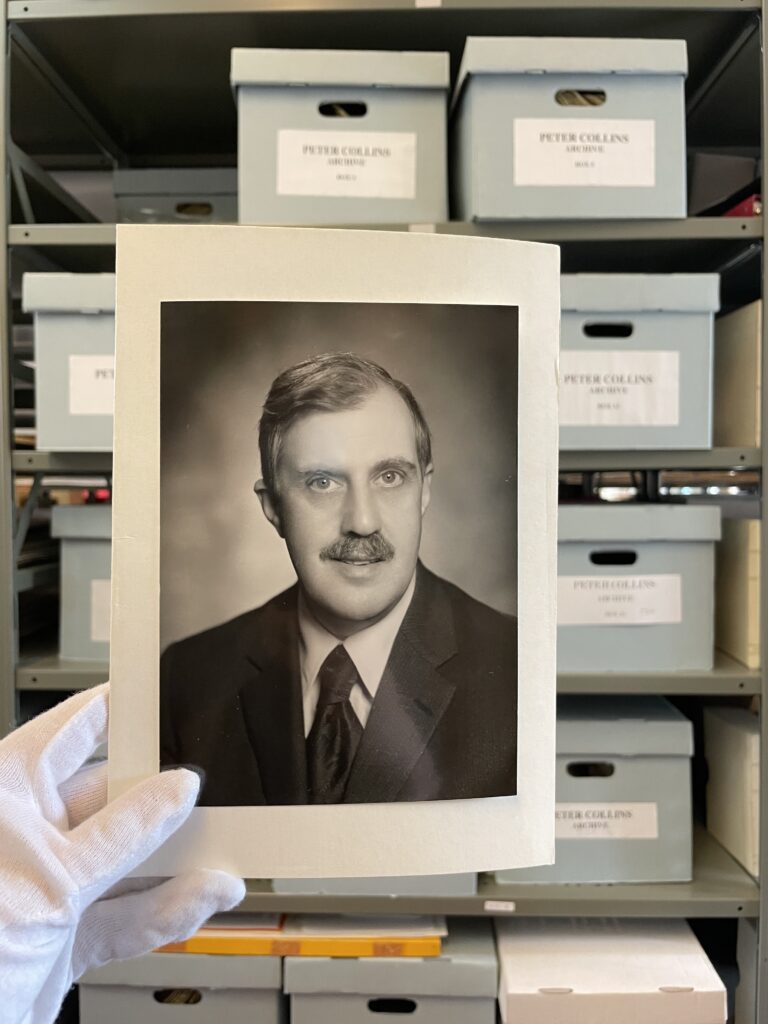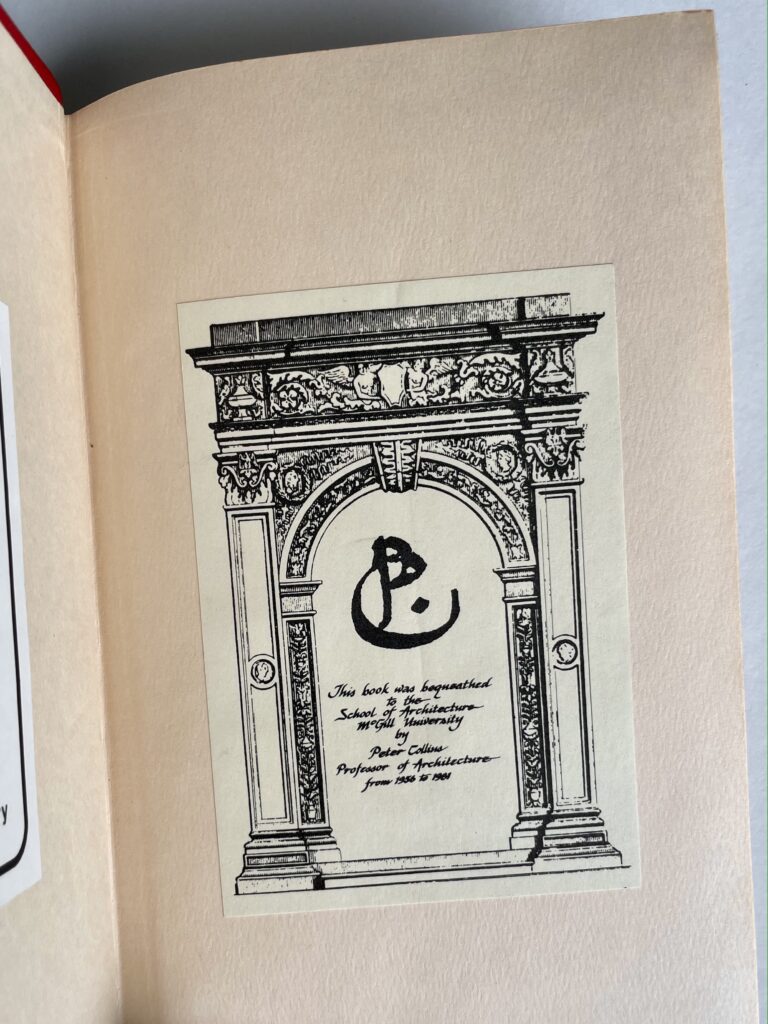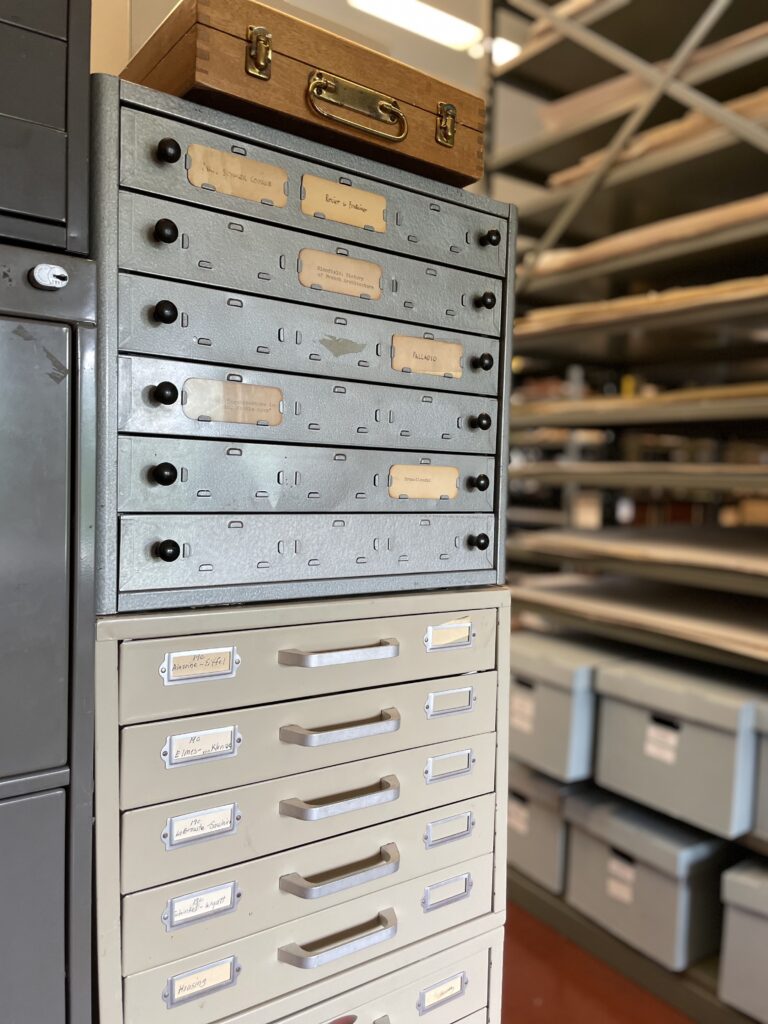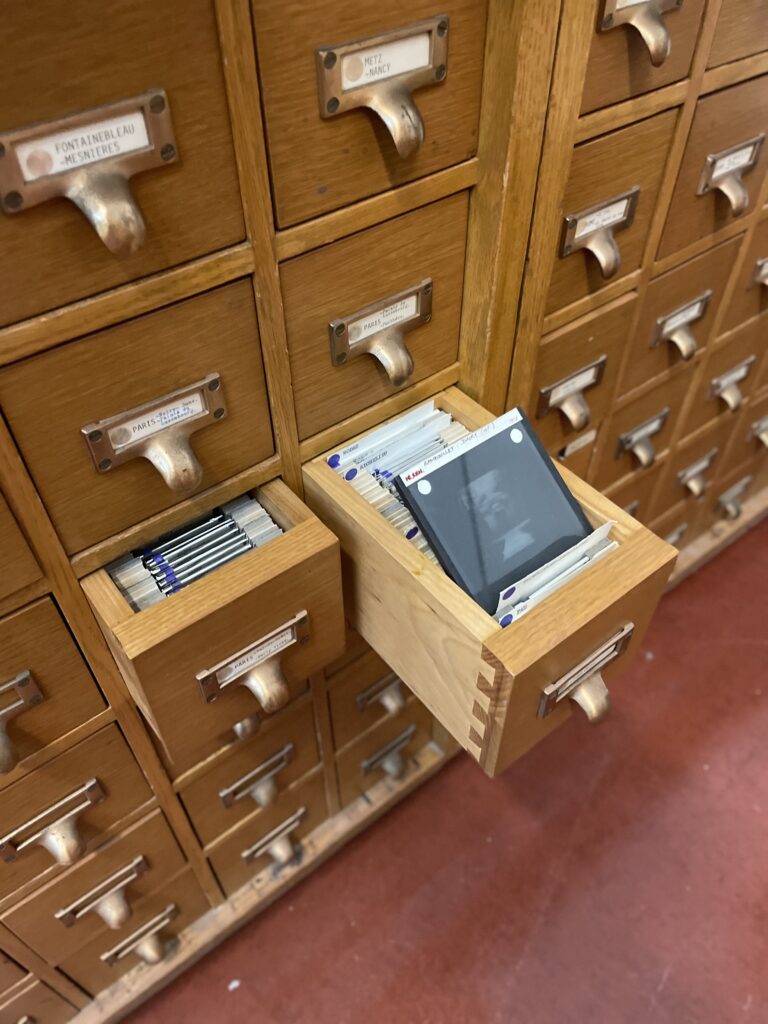McGill Library holds the archive of architect, historian, and educator Peter Collins (August 13, 1920 – June 7, 1981). The collection is housed in the John Bland Canadian Architecture Collection (CAC). Contained in 18 boxes, the collection includes correspondence, photographs, research material, articles, and material related to his three book publications: Concrete, the Vision of a New Architecture (1959), Changing Ideals in Modern Architecture (1965), and Architectural Judgement (1971).
Collins was born in England where he completed degrees at the Leeds School of Architecture and Manchester University. He worked in Switzerland and France with architects trained by Auguste Perret, including Denis Honegger, and later studied law at Yale University. He spent twenty-five years in Montreal teaching at the McGill School of Architecture, and the archive reflects this: dozens of unique course descriptions, assignments, and exams are included. Collins’ slide collection is also part of the archive: the value of the slides to Collins’ teaching and research is evident in the care he took in cataloguing and housing of the collection [see A. Adams, “‘With Precision Appropriate’: Images from the Peter Collins Collection,”ARQ: Architecture Québec 75 (October 1993): 18–19.].
The archive has expanded in recent years through donations, including the slide collection, from the School of Architecture, and Collins’ fountain pen. The most recent addition to the archive is a small collection of correspondence between Collins and architect Denis Honegger, donated by the Honegger Family.
Biography
Peter Collins was born in Leeds in 1920. He completed his undergraduate education at the Leeds School of Architecture in 1948 and during the next four years worked in Switzerland and France with architects trained by Auguste Perret. He returned to England in 1952 to study the development of French architectural theory in the mid-eighteenth century at the University of Manchester.
In 1956, he was appointed Professor of History and Theory of Architecture at McGill University, a post he held until 1981. Collins also taught at renowned American universities including Yale and Berkeley. In his first book, Concrete: the Vision of a New Architecture (1959), Collins studied the invention of concrete, analyzed the ideas and achievements of the nineteenth-century pioneers of reinforced concrete, and celebrated the Structural Rationalism of his master Auguste Perret as the culmination of a 150-year historical development. With this book, which displayed his talents as a writer and his inclination for Classicism, Collins encountered unexpected issues which he attempted to resolve in his second book, Changing Ideals in Modern Architecture (1750-1950). Published in 1965, this pivotal work was an immediate international success. In the book Collins developed an intellectual history which was critical of the formalism which, he believed, characterized the existing histories of the Modern Movement in architecture. Stemming directly from his pedagogical activities in Schools of Architecture, his history focused on the study of the ideals of modern architects. Besides the originality of its methodological approach, Changing Ideals introduced a new field of research by pushing the historical limits of architectural modernity back to the middle of the eighteenth century. This book represents the most important contribution in Canadian historiography to the debates of the 1960’s and remains an invaluable source of information for contemporary history and theory.
At the beginning of the 1970’s, Collins surprised his colleagues by completing a Master of Law degree. Focused on the concept of jurisprudence, these studies were critical in the preparation on his third and final book, Architectural Judgement (1971), in which he compared the decision-making processes in law to those in architectural design. Parallel to the publication of his books, Collins wrote many articles and book reviews in which he took a stand on issues surrounding the teaching of theory and history in architecture schools. In his lifetime, he received numerous prizes for the quality of his work as an historian.

















Leave a Reply
You must be logged in to post a comment.